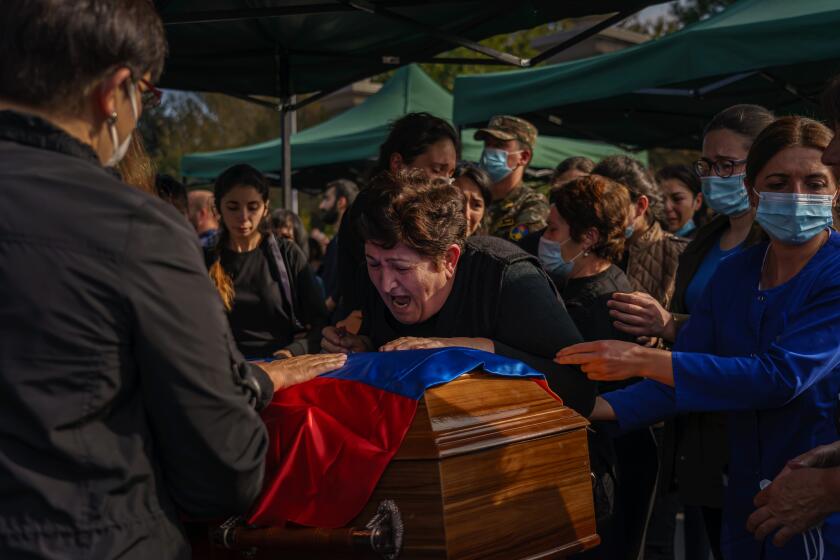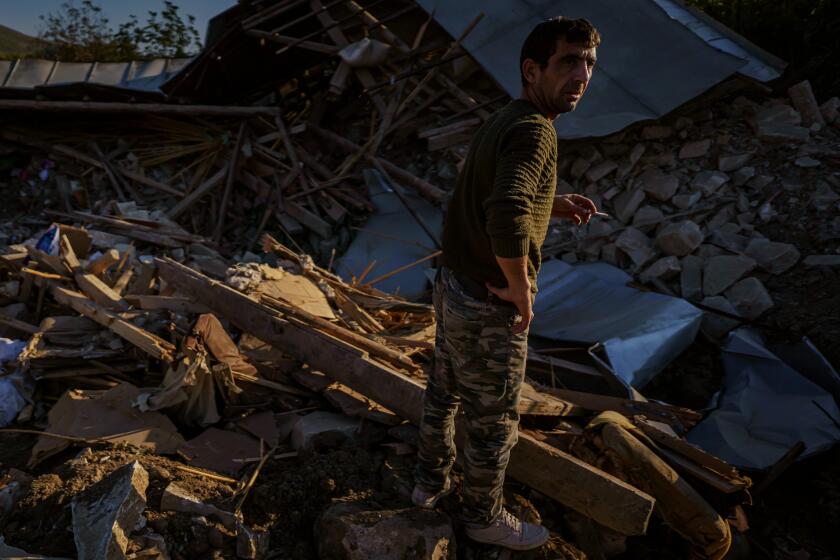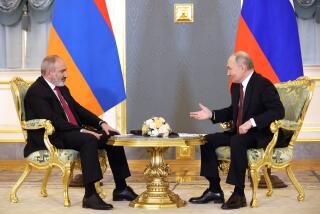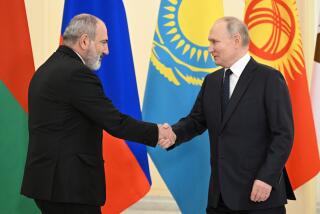Armenian leader wins snap election despite anger over peace deal with Azerbaijan
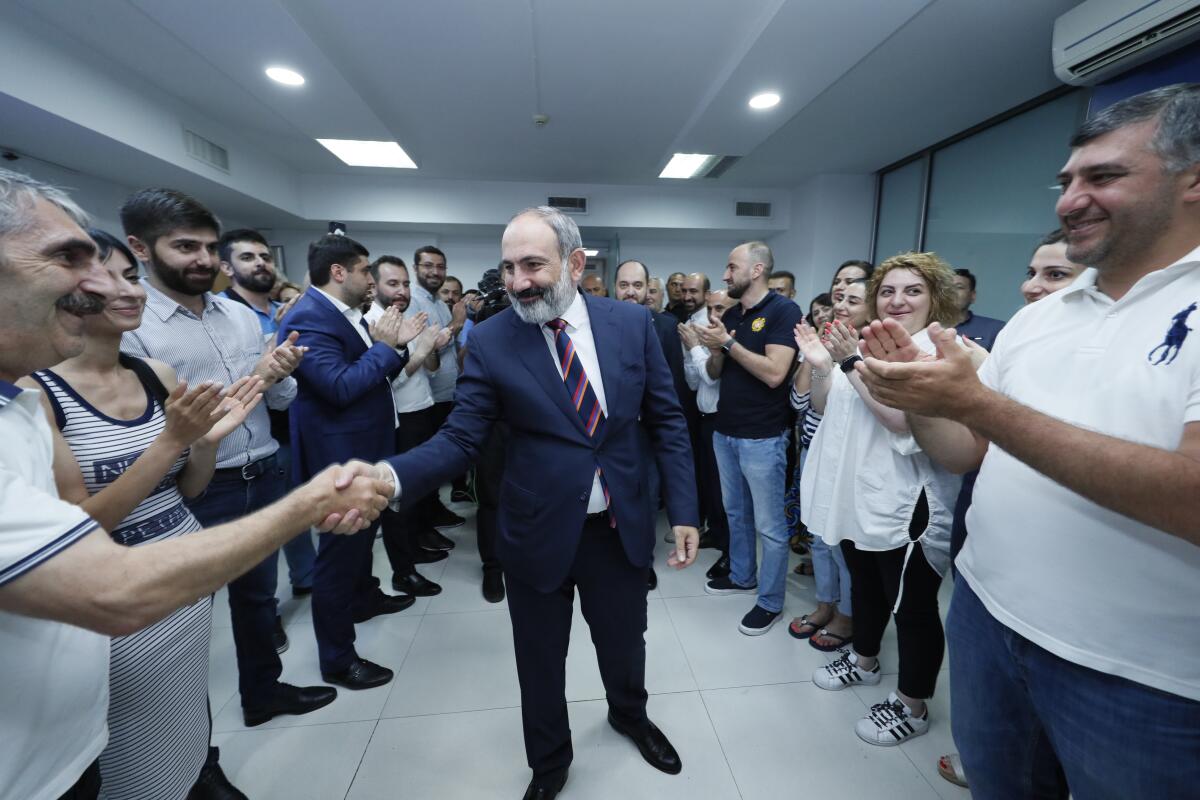
- Share via
YEREVAN, Armenia — Results released Monday showed that the party of Armenia’s acting Prime Minister Nikol Pashinyan won a snap parliamentary election that he called to ease anger over a peace deal he signed with Azerbaijan.
With all precincts counted, Pashinyan’s Civil Contract party won 53.9% of the vote. A bloc led by former President Robert Kocharyan was in a distant second place with about 21%, the election commission said Monday.
A bloc affiliated with another former president came in third with 5.2%, and another party had nearly 4%. Blocs need 7% to get into parliament and parties need 5%. However Armenia’s laws allow a third party or bloc to get seats if only two political groupings pass the threshold to get into parliament.
Pashinyan called the early election after months of protests demanding his resignation because of the peace deal that he signed to end six weeks of fighting with Azerbaijan over the Nagorno-Karabakh region. Armenian forces lost many of the battles in the war.
The peace agreement saw Azerbaijan reclaim control over large parts of Nagorno-Karabakh and surrounding areas that had been held by Armenian forces for more than a quarter-century. Thousands of Armenians took to the streets in the capital of Yerevan to protest the deal as a betrayal of national interests.
Nagorno-Karabakh lies within and is internationally recognized as belonging to Azerbaijan. But the enclave had been under the control of ethnic Armenian forces, backed by the government in Yerevan, since a previous war ended in 1994 with the region and substantial surrounding territory in Armenian hands.
Their decades-old battle over the mountainous territory of Nagorno-Karabakh has come to define how Armenians and Azerbaijanis view themselves.
Armed hostilities flared anew in late September, and the Azerbaijani military pushed deep into Nagorno-Karabakh and nearby areas in six weeks of fighting, involving heavy artillery and drones, that killed more than 6,000 people.
Pashinyan, who came to power after leading large street protests in 2018 that ousted his predecessor, has defended the peace deal as a painful but necessary move that prevented Azerbaijan from overrunning the entire Nagorno-Karabakh region. But many of his compatriots saw it as a humiliation.
After calling the election, he stepped down from the premiership as required by law to allow the election to take place but remained acting prime minister.
Sunday’s ballot involved 21 political parties and four electoral blocs. Despite the high emotions over the war defeat and the calls for Pashinyan to resign, election turnout was low: Only 49% of eligible voters cast ballots.
The use of drones has upset the military balance between Azerbaijan and Armenia in their longtime dispute over the territory of Nagorno-Karabakh.
Pashinyan’s party showed a strong lead early in the count, and he claimed victory hours before all the precincts were counted.
“We have overcome these tough times, and now it’s time to stand up and go forward,” Pashinyan said in a televised address at his party’s headquarters.
The alliance led by his main rival, Kocharyan, the former president, has refused to recognize the results, with the bloc’s spokesperson calling it a “Pyrrhic victory” in comments to local media.
After the results from all precincts were released by Armenia’s election commission, Pashinyan tweeted that “in the newly elected parliament the Civil Contract party will have a constitutional majority,” with at least 71 seats out of 105, “and will form a government led by me.”
More to Read
Sign up for Essential California
The most important California stories and recommendations in your inbox every morning.
You may occasionally receive promotional content from the Los Angeles Times.
